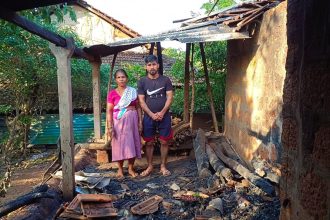Special Correspondent
Panaji: The All Goa Secondary School Teachers’ Association (AGSSTA) has expressed concern over the Education Department’s circular stating that the
new academic year will begin in April.
“The existing rule to commence the academic year in June every year was enacted by the legislative assembly after considering all the geographical and climatic factors, and there was no problem till date,” the association has stated. “The sudden change to commence the academic year in April without taking into consideration the views of main stakeholders, that is parents and teachers, is unreasonable and
incomprehensible.”
AGSSTA president Savio Victoria, in a press release, stated, “The National Education Policy 2020 and National Curriculum Framework for School Education (NCFSE) 2023 does neither mandate/suggest the start of the academic year in April, nor does it mandate to align the academic year calendar with CBSE/ICSE board calendar/timings.”
“Furthermore, there is no law/Act of the central government that mandates the start of the academic year in April or makes it compulsory for state boards to align the academic year calendar with CBSE/ICSE board calendar/timings,” he said.
The press release also stated that, “The start of academic year in April means compulsory half day classroom instruction in the hot April month as the CBSE pattern has assessment time in February/ March with two weeks of full day holidays
after exam.”
“ICSE schools like Manovikas in Margao finish their exam on February 15 and teachers are involved in corrections and preparation of results till February 28 before having two weeks of holidays,” the associated stated. “The immediate start of the academic year without break to refresh the minds of students is going to be a mental stress and torture, besides the schools giving homework during May vacations too.”
“So, in the interest of the students’ holistic development, we appeal to the government to retain the traditional June start for the academic year and instead provide for optional additional enrichment programme in April in the form of specialised coaching in various games/sports/disciplines/competitive exams, summer vacation camps and skill-based learning courses instead of compulsory academic classroom instruction,” AGSSTA has suggested.
“The workload on teachers does not increase with the shifting of the academic year in April,” Victoria observed, adding that, “We are not in favour of the start of the academic year in April in the interest of the students as they will be denied their holistic development. They will have to endure the hot climatic conditions which are not conducive for compulsory
classroom instruction.”




